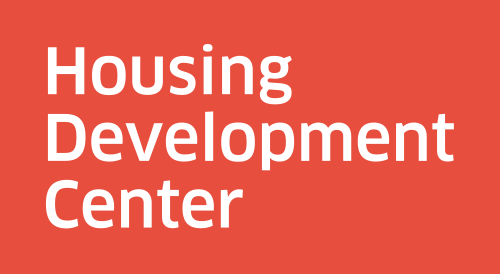Message From Traci: Urge Oregon legislators to invest in preservation in 2025.
In ordinary times, affordable housing advocates would urge elected leaders to focus on building new housing units. Despite increased investments, Oregon’s supply of affordable homes falls well short of need.
But these are not ordinary times. Oregon is on the brink of losing affordable homes faster than we build them.
Operating conditions for affordable housing have shifted from “difficult” to “devastatingly unfavorable” because of radical shifts in the global economy in the past five years. My colleagues and I, echoing widespread industry reports, reported on this escalating crisis last year.
Rental properties have been hit by skyrocketing interest rates and rapidly inflating costs, especially utilities and insurance costs. Market-rate properties are struggling, too. Affordable housing owners have creatively persevered—but properties with legally restricted rent levels are not set up to adjust to market changes of this magnitude.
Property resources are being sucked dry, and residents are feeling the impact. Owners of distressed properties are being denied favorable financing for new projects, slowing down our entire development pipeline.
Now, irreversible losses that many have been warning of are starting to occur: Underwater properties are being disposed of. I know of hundreds of affordable units that have gone up for sale in the past few months. This is the tip of the iceberg.
There is hope that the pace of cost escalation is slowing, but costs aren’t going back to where they were. Meanwhile, many properties are sinking and can’t bail fast enough.
We can’t go down this path. When we lose affordable homes, we lose the taxpayer investments that built them, and we negate the gains of new development. Worse, we put vulnerable residents at risk of drastic rent hikes and eviction, causing irreparable harm to families and offloading costlier problems onto our social welfare system.
But we can preserve affordable homes impacted by extraordinary threats—if we act now.
We know how to preserve affordable homes, and we can do it at lower cost than building new. Oregon’s nonprofit owners, community and industry experts, and elected leaders have repaired and safeguarded tens of thousands of properties across our state in the last decade—including in the period after the great recession of 2008.
We can do it again. Oregon housing leaders have a comprehensive and strategic plan to protect affordable homes under threat in 2025. The plan marries capital reinvestments with preventive resources to achieve the outcomes Oregon needs at the lowest possible cost. Here are the major elements:
Recapitalize affordable properties impacted by extraordinary threats, allowing them to resize their debts and restore operational viability under “new-normal” economic conditions.
Reinvest in properties impacted by ordinary threats: expiring affordability restrictions and major physical repair needs.
Fill empty tanks of property and asset management capacity, drained by five years of severe operating stress, so that operational problems that don’t require public capital investments can be preventively solved.
Provide insurance premium relief to affordable housing and shelter sites and identify ways to reduce insurance costs going forward.
You can help protect Oregon’s existing affordable housing by contacting your state legislators today.
To help ensure that preservation is a funding priority, urge your representatives to support comprehensive solutions for affordable housing preservation in 2025 and to vote “yes” on the following measures:
The $285 million preservation package, part of SB 5505 and SB 5531: Recapitalize properties impacted by both extraordinary and ordinary threats.
SB 51: Provide funds to restore property and asset management capacity.
SB 829: Provide insurance premium relief.
SB 3236: Change rules and regulations to provide flexibility and prioritize protecting threatened properties for the long term.
SB 31: Protect and assist low-income residents facing the loss of their homes.
SP 973: Improve transparency and provide more advance notice for tenants whose homes are scheduled to convert to market rate.
SB 32: Improve tracking and reporting on the status of expiring affordable housing.
These are not ordinary times. Investing in preservation in 2025 is the right choice for the organizations that operate rent-restricted housing, the taxpayers who helped fund these properties, and the families that call these places home.
Want more legislative updates? Sign up for the Housing Oregon newsletter at https://housingoregon.org/join-our-mailing-list/.

